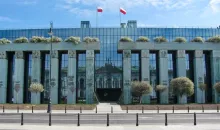Geographical Indications: India’s PGI application for ‘Basmati’
September 29, 2020

On 11th September 2020, the European Commission (EC) published India’s Protected Geographical Indication (PGI) application for ‘Basmati’ under EU Regulation No. 1151/2012 (Regulation). While the origin of Basmati has been contested within India itself, there is opposition by other countries in the Indian subcontinent. Here we identify two critical issues that lead to wider debates in GI scholarship. First, how are GI claims for products with a cross-border origin resolved and what requirements will India need to fulfill? Second, what is India’s objective for protecting Basmati in the EU market and whether GI protection is an adequate strategy for it.
‘Basmati’ has been a registered GI in India since 2016 but only seven states can affix the same to its produce. The origin of Basmati within India is controversial owing to Madhya Pradesh’s persistent claim to be included as a producer, a claim that has been repeatedly rejected. The reputation and origin of Basmati outside India is shared by Pakistan, a fact recognized in inter alia the EU’s 2004 agreement with India and Pakistan, APEDA’s own observations in the ‘Sir Basmati’ trademark dispute before the CJEU (APEDA is the registered proprietor of Basmati in India), and several scholarly works. In this light, proving that ‘the geographical area’ as per Article 8 of the Regulation is limited to India seems challenging. Another interesting ground relevant for the present dispute and possible opposition is Article 10 read in conjunction with Articles 5(2) and 7, which require the applicant to establish appropriate linkage between the quality, reputation and other characteristics of the GI – here: Basmati – with its geographical origin. For countries seeking protection in multiple EU member states, one option is an application under Article 49 of the Regulation. This allows for more than one country (either EU or non-EU) to jointly apply for protection in the EU internal market. There are several examples of such cross-border products. However, diplomatic ties between these countries are stronger than those between India and Pakistan which makes filing a joint application in this case difficult. Efforts to initiate joint registration for Basmati since 2005 have not yielded any effective results. In fact, there have been counter moves to challenge GI rights in both countries by producer organizations.
India’s objectives of seeking protection in the EU market are easy to spot. The bulk of Indian Basmati’s export goes to Iran, Saudi Arabia and other middle-eastern countries. Exports to the EU have been shrinking since 2017 due to their failure to meet stricter EU standards on pesticides. Given the perceived economic and socio-economic impacts of a GI registration in general and in the EU, India like many other countries is lured by the possibility of receiving a fair price and increasing exports in the European market. However, it is worth questioning how well non-EU GI products do in the EU market. As of September 2020, only 35 GIs from non-EU countries are registered as compared to 3349 EU GIs as per the e-Ambrosia database (EU’s GI Register). This is because the registration of Asian GIs in the EU is an “uphill battle” and requires countries to tackle prior trademark claims. That in turn is manageable if the producer organizations are active in defending their interests, e.g. APEDA’s involvement in the Sir Basmati dispute. In fact, organized collective action (bottom-up approach) by the producers is a key success factor for GIs and experts recommend involvement of local communities in managing the GI.
The outcome of this case is interesting for those familiar with the challenges for GI products with cross-border origins. A related example is that of Pisco which is claimed internationally by both Chile and Peru. The EC has resolved these claims by protecting Pisco as a PGI (Peru) and as a PDO (Chile). Whether this can be a solution in case of Basmati as well is yet to be seen. Unfortunately, for the time being, a bilateral agreement between India and Pakistan resulting in a joint application as in the case of Chilean Pisco is off the table.
You may also like












Octavio Espinosa
Dear Devanshi and Surabhi, Thank you for your interesting article regarding the protection of the Indian GI 'Basmati' in the EU. Obtaining that protection is certainly an challenging quest. Let's hope it flourishes. I also believe the question of a possible bi-national GI fo 'Basmati' is an interesting legal an political topic. Let us see how it develops. On this matter of bi-national claims to GIs, please note the the case of the GI PISCO is different from the case of 'Basmati'. The GI PISCO was registered by Peru with the EU Commission and is presently a EU registered GI. As regards 'Pisco' from Chile, that designation was recognized and protected in the EU by virtue of a free-trade bilateral agreement (FTA) between EU and Chile. 'Pisco' was included in the Annex of Chilean appellations attached to that FTA, which also contains the corresponding Annex of European GIs. This is the usual bilateral exchange of lists of GIs. At no point has there been a joint application for the appellation PISCO before the EU, nor a serious attempt at having a joint bi-national administration of that GI. Best regards, Octavio Espinosa
Latha Nair
Dear Authors - there seems to be an erroneous assumption in your blog that India has claimed that Basmati is grown only in India. I infer so from this sentence - " In this light, proving that ‘the geographical area’ as per Article 8 of the Regulation is limited to India seems challenging". There is also a lot of misreporting in various media that India has staked exclusive rights to Basmati. This is not the case if you carefully read the published Single report. Under Article 49 of the relevant EU Regulation 1151/2012, it is possible for two countries to lodge a joint application. The language of the relevant part is, “In the case of a ‘protected designation of origin’ or ‘protected geographical indication’ name that designates a trans-border geographical area or in the case of a ‘traditional specialities guaranteed’ name, several groups from different Member States or third countries may lodge a joint application for registration.” It is not mandatory that a joint application be filed. India and Pakistan, therefore, need not file any joint application.
Devanshi Saxena
Dear Octavio Espinosa, Thank you for the clarification! You are indeed correct that there was never a joint application for Pisco as mistakenly conveyed in the last line of our blog. Best regards, Devanshi Saxena